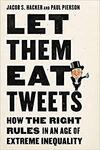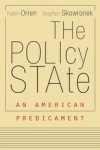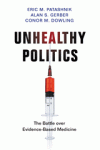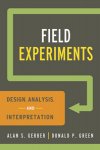Publications
About Our Publications
On this page you will find a list of publications by ISPS Affiliates, including peer-reviewed journal articles, policy briefs, and working papers.
When possible, Publications are linked to Projects and Data via the ISPS KnowledgeBase.
| Title | Author(s) | Discipline |
Publication |
Year |
|---|---|---|---|---|
| Mass Support for Proposals to Reshape Policing Depends on the Implications for Crime and Safety |
Paige E. Vaughn, Kyle Peyton, and Gregory A. Huber |
Interdisciplinary | Criminology & Public Policy | 2022 |
| Persuasive Messaging to Increase COVID-19 Vaccine Uptake Intentions |
Erin K. James, Scott E. Bokemper, Alan S. Gerber, Saad B. Omer, Gregory A. Huber |
Interdisciplinary | Vaccine | 2021 |
| Personal Risk or Societal Benefit? Investigating Adults’ Support for COVID-19 Childhood Vaccination |
Chiara Chiavenna, Laura P. Leone, Alessia Melagaro, Tiziano Rotesi, Scott E. Bokemper, Elliott E. Paintsil, Amyn A. Malik, Gregory A. Huber, Saad B. Omer, Maria Cucciniello, and Paolo Pin |
Interdisciplinary | Vaccine | 2023 |
| Timing of COVID-19 Vaccine Approval and Endorsement by Public Figures |
Bokemper, Scott E., Gregory A. Huber, Alan S. Gerber, Erin K. James, and Saad B. Omer |
Interdisciplinary | Vaccine | 2021 |
| Partisan Differences in Social Distancing May Originate in Norms and Beliefs: Results from Novel Data |
Jennifer D. Wu and Gregory A. Huber
|
Political Science | Social Science Quarterly | 2021 |
| Identifying Legitimacy: Experimental Evidence on Compliance with Authority |
Eric S. Dickson, Sanford C. Gordon, and Gregory A. Huber |
Political Science | Science Advances | 2022 |
| The Racial Burden of Voter List Maintenance Errors: Evidence from Wisconsin’s Supplemental Movers Poll Books |
Gregory A. Huber, Marc Meredith, Michael Morse, & Katie Steele |
Political Science | Science Advances | 2021 |
| Not by Turnout Alone: Measuring the Sources of Electoral Change, 2012 to 2016 |
Seth J. Hill, Daniel J. Hopkins, and Gregory A. Huber |
Political Science | Science Advances | 2021 |
| Exploiting Donald Trump: Using Candidates’ Positions to Assess Ideological Voting in the 2016 and 2008 Presidential Elections |
Andrew Gooch and Gregory A. Huber |
Political Science | Presidential Studies Quarterly | 2018 |
| Experimental Evidence That Changing Beliefs About Mask Efficacy and Social Norms Increase Mask Wearing for COVID-19 Risk Reduction: Results From the United States and Italy |
Scott E. Bokemper, Maria Cucciniello, Tiziano Rotesi, Paolo Pin, Amyn A. Malik, Kathryn Willebrand, Elliott E. Paintsil, Saad B. Omer, Gregory A. Huber and Alessia Melegaro
|
Interdisciplinary | PLOS ONE | 2021 |
| Testing Persuasive Messaging to Encourage COVID-19 Risk Reduction |
Scott E. Bokemper, Gregory A. Huber, Erin K. James, Alan S. Gerber, Saad B. Omer
|
Interdisciplinary | PLOS ONE | 2022 |
| The Effect on Turnout of Campaign Mobilization Messages Addressing Ballot Secrecy Concerns: A Replication Experiment |
Alan S. Gerber, Gregory A. Huber, Albert H. Fang, Catlan E. Reardon |
Political Science | PLOS ONE | 2017 |
| The Generalizability of Online Experiments Conducted During the COVID-19 Pandemic |
Kyle Peyton, Gregory A. Huber, and Alexander Coppock |
Political Science | Journal of Experimental Political Science | 2021 |
| Political Ideology and Racial Preferences in Online Dating |
Ashton Anderson, Sharad Goel, Gregory Huber, Neil Malhotra, Duncan J. Watts |
Interdisciplinary | Sociological Science | 2014 |
| A Field Experiment Shows That Subtle Linguistic Cues Might Not Affect Voter Behavior |
Alan S. Gerber, Gregory A. Huber, Daniel R. Biggers, and David J. Hendry |
Political Science | Proceedings of the National Academy of Sciences | 2016 |
| Reply to Bryan et al.: Variation in Context Unlikely Explanation of Nonrobustness of Noun Versus Verb Results |
Alan S. Gerber, Gregory A. Huber, Daniel R. Biggers, and David J. Hendry
|
Proceedings of the National Academy of Sciences | 2016 | |
| Local Demographic Changes and US Presidential Voting, 2012 to 2016 |
Seth J. Hill, Daniel J. Hopkins, and Gregory A. Huber |
Political Science | Proceedings of the National Academy of Sciences | 2019 |
| Persuading US White Evangelicals to Vaccinate for COVID-19: Testing Message Effectiveness in Fall 2020 and Spring 2021 |
Scott E. Bokemper, Alan S. Gerber, Saad B. Omer, Gregory A. Huber |
Political Science | Proceedings of the National Academy of Sciences | 2021 |
| The Economic Security Index: A New Measure for Research and Policy Analysis |
Jacob S. Hacker, Gregory A. Huber, Austin Nichols, Philipp Rehm, Mark Schlesinger, Rob Valletta, Stuart Craig |
Political Science | Review of Income and Wealth | 2013 |
| Nongovernmental Campaign Communication Providing Ballot Secrecy Assurances Increases Turnout: Results From Two Large-Scale Experiments |
Alan S. Gerber, Gregory A. Huber, Albert H. Fang and Andrew Gooch |
Political Science | Political Science Research and Methods | 2017 |
ISPS Working Paper Series
ISPS advances interdisciplinary research in the social sciences that aims to shape public policy and inform democratic deliberation. The ISPS network includes scholars and students from many departments in the Faculty of Arts and Sciences and from Yale’s graduate and professional schools as well as select experts from other institutions. The ISPS Working Paper Series provides a platform for ISPS affiliates to make their work available for public consumption and discussion.
Featured Books by ISPS Faculty
ISPS Sponsored Publications
ISPS Politics & Policy Book Series: A series striving to place policy- and law-making in historical and comparative perspective, reflecting the broad, multidisciplinary character of ISPS.
ISPS Journal: A biannual publication that serves to highlight ISPS scholars’ publications and as a development piece for foundations and interested donors.
GOTV website: A website compiling results from a wide array of voter mobilization field experiments. Findings from these scientifically measured studies of various Get-Out-the-Vote methods offer valuable insight into which methods are most effective in mobilizing voter turnout (Note: the website indexes GOTV experiments published before 2006).
The Bulletin of Yale University includes several issues devoted to ISPS (PDF): 2000-2002, 2002-2004, 2004-2006, and 2006-2008.






